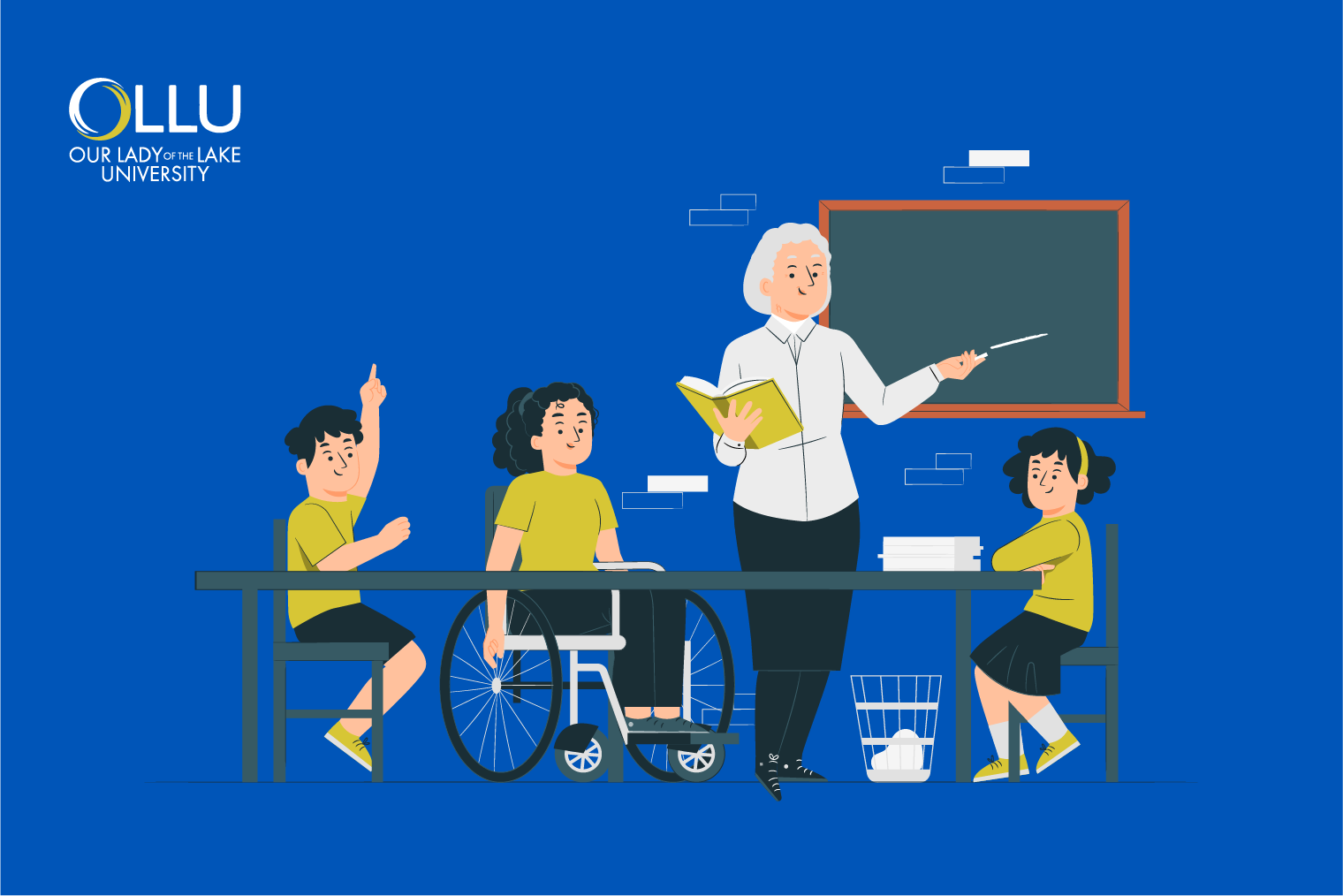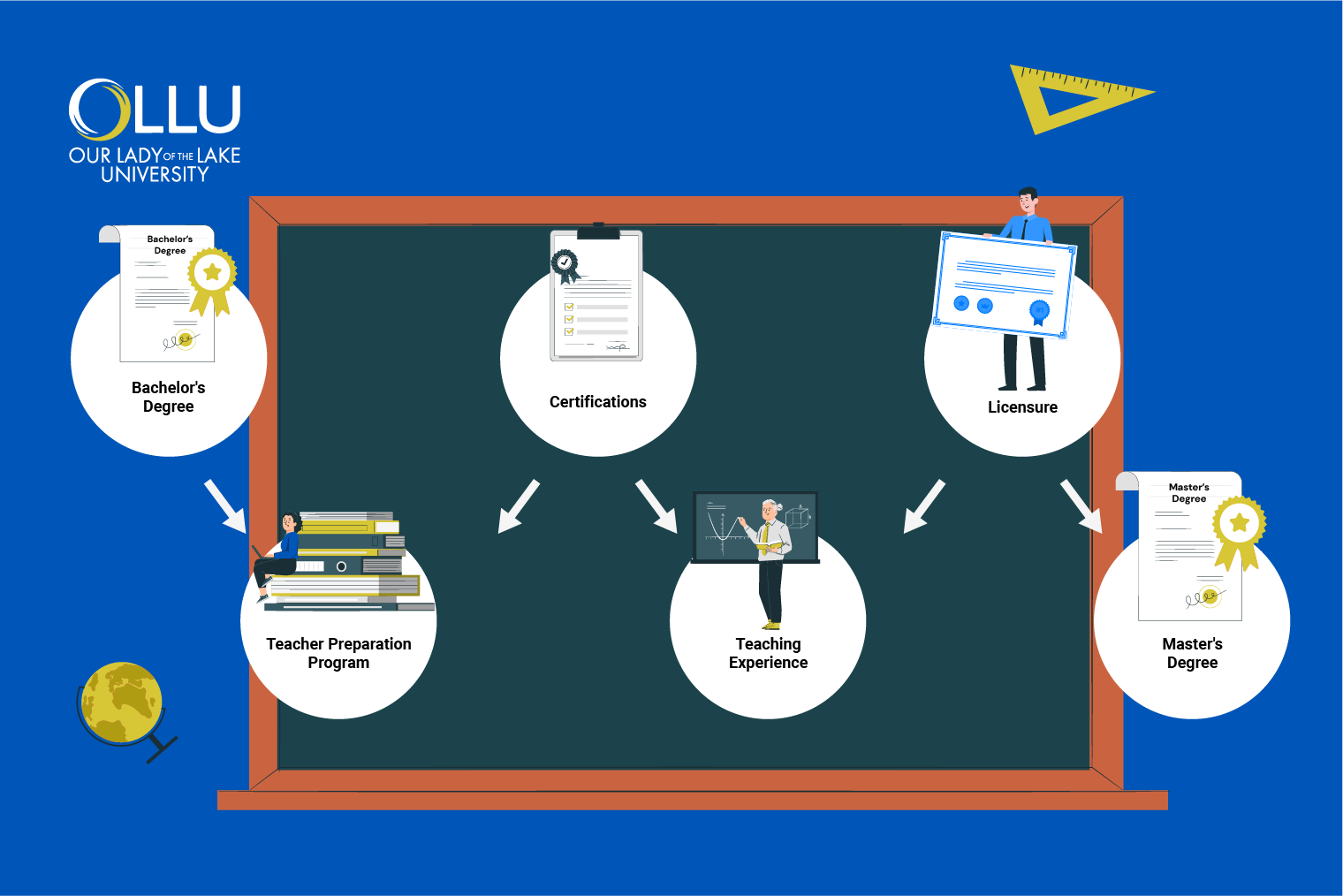How to Become a Special Education Teacher: A Step-by-Step Guide
Jul 29, 2024

Are you passionate about teaching and having a positive impact on children's lives with learning differences? If so, you may want to consider a career as a special education teacher.
As a special ed teacher, you get to work with students who have difficulty responding to standard teaching methods or those who may not be able to participate in mainstream classroom learning at all. While the profession comes with its challenges, teachers claim the emotional reward is unmatched.
Today, we're sharing everything you need to know about how to become a special education teacher, the skills you need for the job, and the compensation and job outlook you can expect. Let's explore the roadmap to success in this profoundly fulfilling profession.
What is a Special Education Teacher?
Special education teachers are highly trained educators who provide individualized support and instructions to students with various disabilities and special needs that impact their learning and development. Their primary role is to provide specialized instruction and support to help these students succeed academically, socially, and emotionally.
They work in public and private schools, specialized schools, early intervention programs, residential facilities, home programs, etc.
As mentioned, these educators work with students who have a wide range of disabilities and special needs, including students with:
-
Autism Spectrum Disorder (ASD)
-
Deafness/Hearing Impairment
-
Developmental Delay
-
Emotional Disturbance
-
Intellectual Disability
-
Orthopedic Impairment
-
Traumatic Brain Injury (TBI)
What Does a Special Education Teacher Do?
Special ed teachers work with children of all ages who have special needs. To provide specialized care to their students, these educators collaborate with general teachers, parents and school administrators to develop Individualized Education Programs (IEPs) for each student.
Additionally, they are in charge of:
-
Assessing their students' skills and determining their educational needs
-
Planning activities that are specific to each student's abilities
-
Discussing students' progress with parents' other teachers, counselors, and administrators
-
Teaching and mentoring students as a class, in small groups, and one-on-one
-
Updating IEPs throughout the school year to reflect students' progress and goals
How to Become a Special Education Teacher?

As with any classroom teacher position, you must meet specific requirements to take the title.
While special education teacher requirements vary from state to state, there is some degree of overlap on the journey to become a special ed educator. Let's explore the key steps to ensure licensure in special education.
1. Earn a bachelor's degree
The first step in becoming a special education teacher is earning a bachelor's degree in special education or a related field. These four-year programs offer a strong foundation to effectively teach students with special needs.
Typically, they include clinical teaching experience and include academic requirements for state teacher certification. You also get to learn about curriculum modification, special education law, and learning environments for these students.
2. Complete a teacher preparation program
Typically, after completing undergraduate studies, you need to pursue a special education teacher preparation program. This program is designed to help you prepare for a career in special education, fortifying the necessary knowledge, skills, and practical experiences to become an effective special education teacher.
During this time, students also learn how to plan and implement lessons, create a positive learning environment, and handle student behavior issues.
3. Obtain additional certifications
After earning a degree and student teaching hours, you can become a special education teacher if you pass your state's special education teaching test. Depending on your state, you may be required to take the Professional Teaching Knowledge exam or PTK exam.
Following, you must take and pass the American Board Special Education exam and the American Board Elementary Education exam. As a result of passing the exams, you can receive an ABCTE certification in Special Education from the American Board.
4. Gain teaching experience
Experience is integral to becoming a special education teacher, as it allows you to apply theoretical knowledge in real-world settings and develop essential skills. Usually, special ed undergraduate studies oblige students to participate in a 16-week student teaching internship.
During the internship, you can gain hands-on experience under the mentorship of a cooperating special education teacher. Apart from the student teaching internship, you can also gain experience as a substitute teacher.
5. Get licensed
While they vary among states, licenses are a must in becoming a special ed teacher. Depending on the state, you may receive a general license, which allows you to work with any special needs children, or a license that allows you to work within a specialized area.
Although the requirements for licensure vary from state to state, the process involves:
-
Holding a bachelor's degree with a minimum GPA
-
Passing a background check
-
Completing a teacher preparation program and supervised teaching experience
-
Passing the Praxis II teaching exam
Some states may require you to obtain a master's degree within a few years after starting your career. Moreover, you may need to complete annual professional development classes to maintain your license.
6. Consider a master's degree
Although a master's degree isn't obligatory, some states or employers prefer or require a master's degree in special education. Pursuing an advanced degree allows you to study advanced topics for the special education classroom, such as models of child development, classroom management, and monitoring techniques.
It also allows you to specialize further within the field, such as:
-
adapted curriculum
-
early childhood special education
-
education for students on the Autism spectrum
-
social-emotional learning, etc
Moreover, earning a master's degree in special education may also position you for possible career advancement and leadership roles.
Special Education Teacher Skills
When preparing to become a highly qualified special education teacher, it's crucial to consider the skills needed to be an effective educator. Here are the top skills that can enhance your performance as a special education teacher.
Patience
Without patience, you cannot thrive as a special ed teacher. Patience is crucial for creating an inclusive, supportive, and effective learning environment for students with special needs.
Students with special needs often have unique challenges and learning paces. As their teacher, you need to be patient and provide them with the necessary support and encouragement. It helps you show that you genuinely care for your students and understand their challenges, leading to a supportive and effective learning environment.
Communication skills
Clear and effective communication is fundamental to your success as a special education teacher. It allows you to convey instruction and information while actively listening to understand their needs. This helps reduce confusion and frustration, enabling students to engage more effectively in their learning.
Besides communicating with students, you also need communication skills when interacting with parents and colleagues.
Creativity
Creative teaching methods are crucial in special education for engaging students with diverse learning needs and overcoming challenges. These methods cater to different learning styles and abilities, making lessons more accessible and engaging. Creativity is also needed to provide effective solutions, such as finding innovative approaches to address barriers to learning and adjusting teaching strategies based on student needs.
For example, educational technology tools like interactive apps can help students with motor skills practice writing more engagingly.
Organization
Organization skills are also crucial as they enable effective management of classroom resources, plan lessons, keep records, and manage time during lessons. Being organized allows you to streamline your workload and ensure that every aspect of the teaching process is thoughtfully managed to meet the unique needs of each student.
Empathy
It is impossible to think of a special education teacher who doesn’t possess empathy. That’s because becoming a special ed teacher means caring for the development and education of children who need extra care.
Empathy allows you to understand and respond to students' emotions, challenges, and experiences with compassion. Through empathy, you can create a nurturing environment where students feel valued and understood.
Special Education Teacher Salary and Job Outlook
Special education teachers earn an average of $67,190, with most salaries ranging from $53,780 to $91,050. However, the salary depends on factors like education, location, and experience.
Looking ahead, the overall employment of special education teachers is estimated to show little or no change over the decade. While the employment growth is limited, BLS projects about 33,500 openings for special education teachers annually. The demand for special education teachers depends on school enrollments, state funding, and the need for special education services.
The Bottom Line
Becoming a special education teacher requires passion and a deep commitment. This journey involves pursuing undergraduate (and sometimes graduate) studies, completing a teacher preparation program, obtaining certifications, gaining experience, and getting licensed. These steps are crucial in preparing you to effectively support and advocate for students with special needs.
If you have a heart for education and a commitment to inclusivity, consider taking the next steps toward becoming a special education teacher. Your dedication and compassion can truly transform the educational experience for countless students. Take the leap and check out our Master of Arts in Teaching (MAT) specialization in Special Education, which prepares you to meet the individual needs of students who receive special education services in elementary schools.
Frequently Asked Questions:
Why do people want to be special education teachers?
People are often drawn to special education teaching because they are passionate about helping students with diverse needs. Additionally, they want to significantly impact student lives and are committed to promoting inclusivity in education.
How long does it take to become a special education teacher?
The timeline to become a special education teacher can span five to six years, including four years of undergraduate studies, 400 to 600 hours of teaching experience, and one to two years of graduate school.
Do special education teachers teach all subjects?
Special education teachers typically instruct students in core academic subjects like math, English, and the sciences. In many cases, they also teach life skills like communication and emotional regulation.